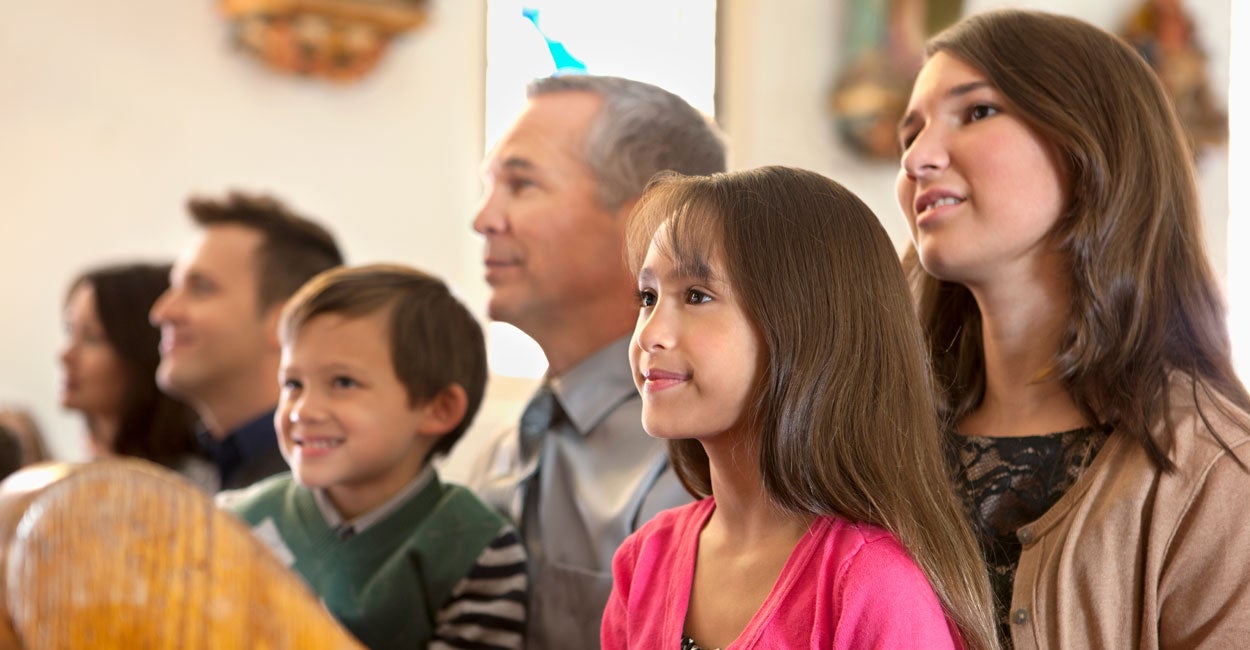New Research Shows Christianity Growing in America, Reversing Downward Trend
Christianity’s decline in America has slowed and could be turning a corner upward—just what our country needs to return to its rich history rooted in... Read More The post New Research Shows Christianity Growing in America, Reversing Downward Trend appeared first on The Daily Signal.

Christianity’s decline in America has slowed and could be turning a corner upward—just what our country needs to return to its rich history rooted in “In God We Trust.”
As a 2017 convert to Christianity from agnosticism myself, this is encouraging news.
Pew recently reported in its annual religion study: “After many years of steady decline, the share of Americans who identify as Christian shows signs of leveling off.” Pew began its religion poll in 2007.
There have been several profiles in major national media—e.g., secular-leaning outlets—on the rise of Christianity in Silicon Valley, including from The New York Times, as well as The Atlantic and WIRED.
While these trends are encouraging, there’s still cause for concern. The majority of younger Americans are now non-Christian, and the proportion of young Christians has fallen significantly in the past 10 years.
However, COVID-19 seems to have disrupted this trend of decline among young people somewhat. The Wall Street Journal’s Clare Ansberry, writing on polling data from the Springtide Research Institute, reported in 2023 that a growing share of 18- to 25-year-olds say they believe in the existence of God or a higher power. This figure started to grow as young people reported a loss of connection and meaning, coinciding with COVID-19 isolation.
The rise in faith is good for public health, as numerous studies confirm the mental, physical, and emotional benefits of personal and group religious practice.
Women who attend religious services at least weekly are 68% less likely to die “deaths of despair”—suicide, drug overdose, or alcohol poisoning. Men are 33% less likely, according to 2020 research from Harvard University’s School of Public Health.
On the other hand, the National Bureau of Economic Research reported that states with declining religious worship attendance also showed increased deaths of despair, and vice versa with states with increasing attendance.
A literature review appearing in Psychiatric Times reported: “Of 93 observational studies, two-thirds found lower rates of depressive disorder with fewer depressive symptoms in persons who were more religious. … A review of 134 studies that examined the relationships between religious involvement and substance abuse [concluded that] 90% found less substance abuse among the more religious.”
And what of the fruits of religiosity? Turns out that American Christians are more likely to adopt a child, volunteer, vote, and contribute to charity than secular people.
Christians are at the forefront of fighting global human trafficking. And late pastor Billy Graham’s charity, the Samaritan’s Purse, is a nimble and powerful player in disaster response. Samaritan’s Purse often moves more quickly than government bodies to provide food, water, shelter, medicine, and other relief worldwide for people suffering crises, disasters, and wars.
From hospitals to soup kitchens to schools for indigent children, the Catholic Church is a blessing for countless people worldwide as well.
Graham taught, “When we come to the end of ourselves, we come to the beginning of God.” Indeed, the model of Christian servant leadership means caring for others is the true measure of greatness and a way to become closer to God.
The late theologian Tim Keller disagrees with socialist Karl Marx, who called religion the “opiate of the masses.” Keller believed that by coming to earth, Jesus showed how God cares for the needs of the physical world.
Marx charged that religion “is a sedative that makes people passive toward injustice because there will be ‘pie in the sky bye and bye.’ That may be true of some religions that teach people that this material world is unimportant or illusory,” Keller wrote in his book “The Prodigal God.”
“Christianity, however, teaches that God hates the suffering and oppression of this material world so much, he was willing to get involved in it and to fight against it. Properly understood, Christianity is by no means the opiate of the people. It’s more like the smelling salts,” Keller wrote.
That’s not to say a subset of extremist religious people from various backgrounds haven’t engaged in heinous acts through a counterfeit use of God’s name. Religious extremism violates the Christian virtues of love, joy, peace, kindness, and self-control. Despite a few outliers, Christianity in America is a potent force for good.
It’s encouraging to see Americans returning to the faith of our fathers as evidence shows lives of faith are also more meaningful and less isolating. Let’s pray this trend continues.
Carrie Sheffield is author of ”Motorhome Prophecies: A Journey of Healing and Forgiveness” and program manager of Healthy Faith at United Charitable.
We publish a variety of perspectives. Nothing written here is to be construed as representing the views of The Daily Signal.
The post New Research Shows Christianity Growing in America, Reversing Downward Trend appeared first on The Daily Signal.










